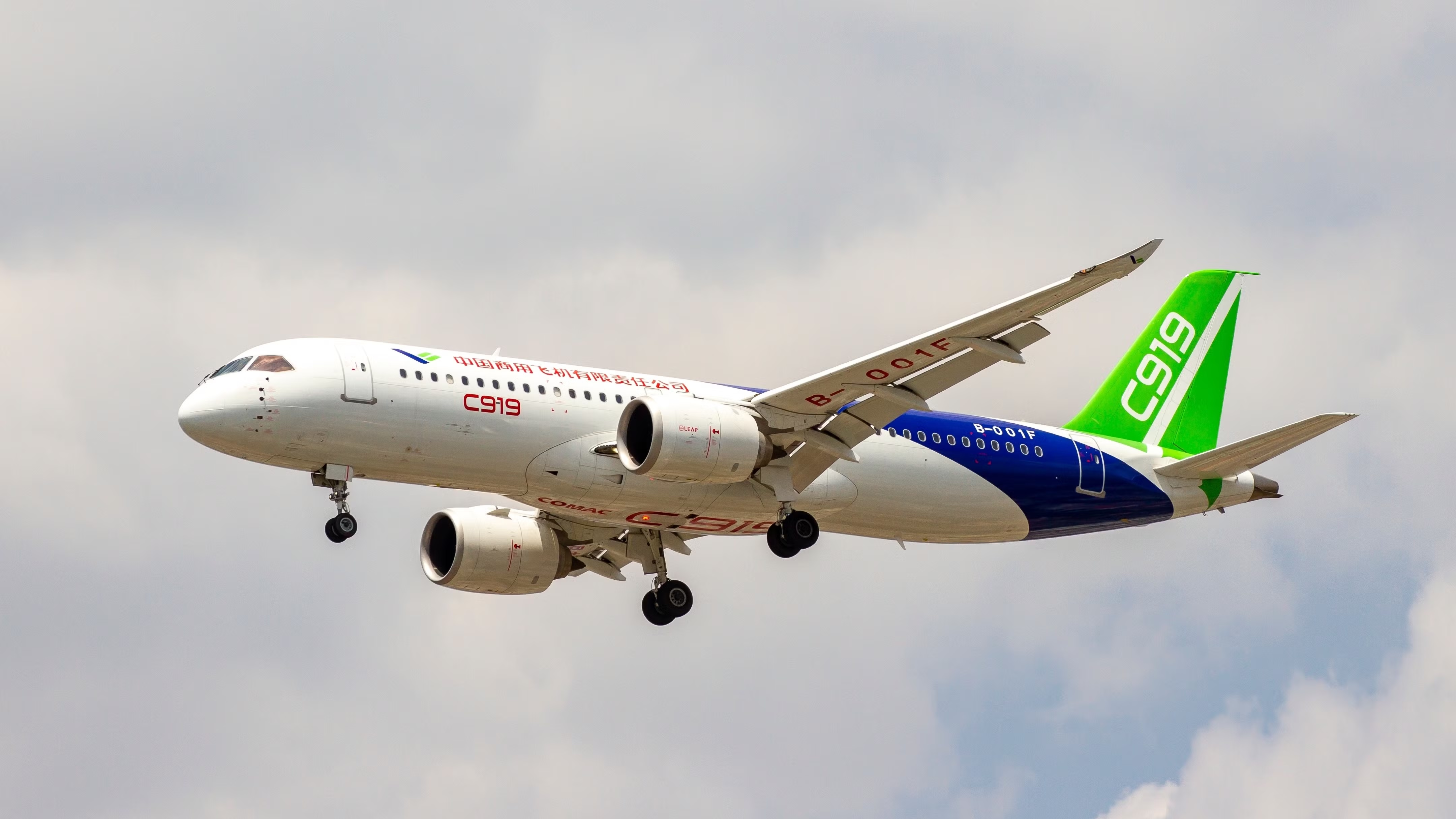AeroGenie — Your Intelligent Copilot.
Trending
Categories
US Halts Sales of CFM LEAP-1C Engines to COMAC

US Halts Sales of CFM LEAP-1C Engines to COMAC
Suspension of Engine Exports and Its Impact on China’s Aviation Ambitions
The United States has suspended the sale of critical American technologies to China, including the CFM LEAP-1C engines that power the COMAC C919 jetliner. This decision, announced two years after the C919 entered commercial service, is poised to significantly impede the production of China’s flagship passenger aircraft. It also complicates Beijing’s broader ambitions to compete with established models such as the Airbus A320 and Boeing 737.
Currently, only 18 C919 jets are operational with Chinese airlines, but COMAC has ambitious plans to increase production to 50 units annually in the near term. The company faces a backlog exceeding 1,000 orders from domestic carriers and aims to deliver 30 aircraft in 2025, with a long-term target of producing more than 120 jets per year by 2028. However, the suspension of engine exports threatens to leave newly manufactured aircraft without the necessary powerplants, potentially stalling these production goals.
Strategic and Economic Implications
The CFM LEAP-1C engine, produced by CFM International—a joint venture between GE Aerospace of the United States and France’s Safran Aircraft Engines—is the exclusive powerplant for the C919. The unavailability of this engine leaves COMAC with few viable alternatives, underscoring the challenges China faces in developing advanced jet engine technology, which remains years behind Western counterparts.
According to reports from Reuters and the New York Times, the U.S. action forms part of a broader review of exports considered strategically significant to China. The U.S. Commerce Department has suspended certain export licenses and tightened regulatory requirements in response to China’s own restrictions on critical mineral exports to the United States. Aviation equipment is among the sectors most affected by these new controls, which come amid ongoing trade tensions between the two nations.
The halt in engine sales not only disrupts COMAC’s production plans but also reinforces the competitive advantage of U.S. and European engine manufacturers. With limited access to alternative engine technologies, COMAC may struggle to meet its production targets and expand into international markets. The C919 has yet to secure orders outside China and is still pursuing certification from European regulators to enter new markets.
China has strongly condemned the latest U.S. restrictions. A spokesperson for the Chinese Embassy in Washington stated, “China firmly opposes the US's overstretching the concept of national security, abusing export controls, and maliciously blocking and suppressing China.”
As the trade dispute continues, the suspension of CFM LEAP-1C engine sales highlights the strategic leverage held by U.S. and European suppliers within the global aerospace industry. For COMAC, this development represents a significant obstacle to its efforts to challenge the dominance of Western aircraft manufacturers and to achieve greater self-reliance in critical aviation technologies.

Factors Positioning Airbus for Leadership in 2026

Emirates Unveils Cabin Design for New Boeing 777X

Eighteen Years On, the Airbus A380 Remains Central to a $34 Billion Airline

How a boom in luxury airline seats is slowing down jet deliveries

Navitaire Outage Attributed to Planned Maintenance

Airbus Plans Record Delivery of 870 Aircraft in 2026

DigiYatra Debuts Outside Aviation at India AI Impact Summit

Vietnam Orders Strengthen Boeing’s Commercial Outlook

Airbus Signals Uncertainty Over Future A400M Orders

JobsOhio Awards $2 Million Grant to Hartzell Propeller for Innovation Center
